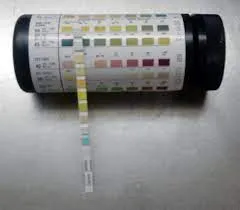Дек . 21, 2024 12:29 Back to list
Understanding the Hepatitis B Surface Antigen Test and Its Importance
Understanding the Hepatitis B Surface Antigen Test
Hepatitis B is a viral infection that affects the liver, causing both acute and chronic diseases. The virus is transmitted through contact with infectious body fluids, such as blood, semen, and vaginal secretions. The Hepatitis B surface antigen (HBsAg) test is a crucial diagnostic tool used to determine if a person is currently infected with the Hepatitis B virus (HBV). This article will delve into the significance of the HBsAg test, its implications, and the broader context of Hepatitis B.
What is the HBsAg Test?
The HBsAg test detects the presence of the Hepatitis B surface antigen in the blood. HBsAg is a protein that is present on the surface of the Hepatitis B virus. When a person is infected with HBV, this antigen can usually be detected within one to ten weeks after exposure. The presence of HBsAg indicates that the individual is currently infected, whether it be an acute or chronic infection.
The HBsAg test is typically performed as part of a routine screening for individuals at risk of Hepatitis B, including those with a history of intravenous drug use, multiple sexual partners, or those who have traveled to or lived in regions with a high prevalence of Hepatitis B.
Interpreting HBsAg Results
1. Positive HBsAg Result If the HBsAg test returns a positive result, this indicates a current Hepatitis B infection. Further tests may be required to determine the phase of the infection, whether it's acute or chronic, and to assess liver function and the potential for liver damage.
2. Negative HBsAg Result A negative result means that HBsAg is not present, suggesting that the person does not have an active infection. However, it’s important to note that this does not rule out past infections or immunity resulting from vaccination.
hepatitis b surface antigen test

Significance of Early Detection
Early detection of Hepatitis B through the HBsAg test is critical. Many individuals with acute Hepatitis B may not show symptoms, leading to potential complications if left untreated. Chronic Hepatitis B can lead to severe liver conditions, including cirrhosis and hepatocellular carcinoma. Regular screening and early intervention allow for timely medical management, reducing the risk of long-term complications.
Treatment and Management
If diagnosed with a Hepatitis B infection, treatment options depend on the severity and nature of the infection. Acute cases may resolve spontaneously, but chronic infections require careful monitoring and may necessitate antiviral medications. Individuals with chronic Hepatitis B are often followed closely by healthcare providers to monitor liver function and prevent complications.
Prevention Strategies
Preventive measures are also vital in combating Hepatitis B. The vaccine for Hepatitis B is safe and effective, forming a significant layer of protection against the virus. Vaccination is especially essential for high-risk individuals and can greatly reduce the incidence of new infections.
Conclusion
The Hepatitis B surface antigen test is a pivotal component in the early detection and management of Hepatitis B infections. Understanding the implications of the HBsAg test can empower individuals to seek timely medical intervention and adopt preventive strategies. Regular screening, vaccination, and public awareness are essential tools in reducing the burden of Hepatitis B globally. By prioritizing Hepatitis B education and preventive measures, we can help ensure healthier futures for individuals at risk of this viral infection.
-
Dengue NS1 Rapid Diagnostic Test Kit
NewsMar.07,2025
-
Dengue NS1 Rapid Diagnostic Test Kit
NewsMar.07,2025
-
Dengue NS1 Rapid Diagnostic Test Kit
NewsMar.07,2025
-
Transferrin Rapid Test Cassette Tumor Marker TF Card
NewsMar.07,2025
-
Malaria Pf Pan Rapid Diagnostic Test Kit
NewsMar.07,2025
-
malaria pf / pan ag rapid test
NewsMar.07,2025

